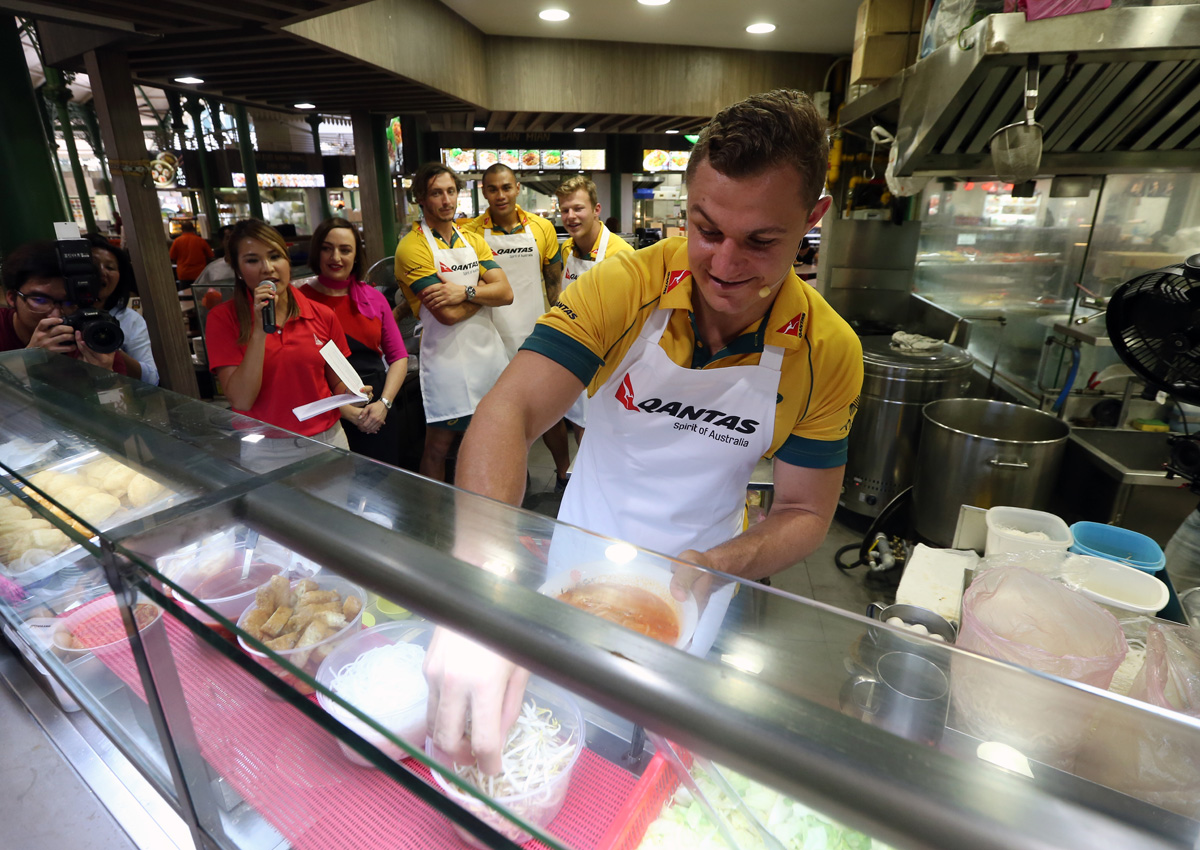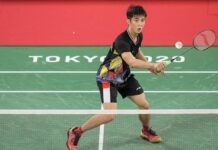Despite their undoubted pedigree, there is a gaping hole in Australian rugby when it comes to the sevens version.
The country can boast two Rugby World Cup triumphs and were losing finalists in last year’s 15-a-side union edition, yet they have never claimed the HSBC World Rugby Sevens Series title.
The Thunderbolts are fourth in this season’s standings with 105 points, behind defending champions Fiji (128 points), New Zealand (123) and South Africa (122), and unlikely to challenge for the overall championship.
But recent results have offered hope that winning an Olympic medal in August, when rugby sevens makes its debut at the Summer Games, is a realistic target.
Centre Cameron Clark has been instrumental in that run – Australia were runners-up in the Sydney and Las Vegas legs in February, third in Vancouver last month and fourth in Hong Kong last week – and he believes that confidence within the side is gaining.
The 23-year-old, who recorded 32 tries last term to finish joint fourth in the try scoring list, said: “We’re starting to compete with the top sides in the world. With four Cup semis in a row now (the first time since 2004), there’s plenty of belief and we can be right up there in medal contention and hopefully in Rio we have gold medals around our necks.”
Forward Sam Myers, however, noted that rugby sevens still struggles to gain attention in his country, where Australian rules football is the most popular sport, and the union and league versions of rugby are more widely played.
That leads to a smaller talent pool to pick from, said Clark, who competed in a “laksa-making challenge” organised by team sponsor Qantas together with team-mates Myers, Frank Winterstein and Stephan van der Walt yesterday at Lau Pa Sat.
Meanwhile, the likes of reigning Sevens Series champions Fiji and the New Zealand All Blacks prioritise sevens and have enjoyed huge success in it, capturing 14 of the past 16 Seven Series seasons.
Each of the two countries has won three legs so far this 2015-16 campaign and are in a league of their own, admitted Clark.
He added: “Fiji don’t play like anyone else. They throw the ball around a lot, are very good offloaders of the ball and just keep the ball alive… When the Fijians click and their passes all stick, they’re pretty hard to stop.
“New Zealand are often a physical team… They’ve got some big guys who are very physical and dominant with the ball in hand.”
Australia are in Pool D alongside Wales, Argentina and Japan. It may look like a relatively straightforward group but Myers is taking nothing for granted when his team trots out onto the National Stadium pitch this weekend, when the series returns after 10 years.
“There are no easy games these days. Everyone’s improved his level,” said the 25-year-old, who was in the side who fell 7-22 to the United States in last week’s group stage.
While the Americans are regarded as a rising force in rugby sevens, it is the traditional giants Fiji, New Zealand and South Africa, who won the Cape Town leg, who are the biggest obstacles for Australian hopes.
Yet having overcome the South Africans twice this year, including in front of a partisan crowd in Sydney, Myers was unfazed.
He said: “Tell the Aussies here to come out and be loud. The louder you are, the more exciting we’ll play.”

This article was first published on April 13, 2016.
Get a copy of The Straits Times or go to straitstimes.com for more stories.






